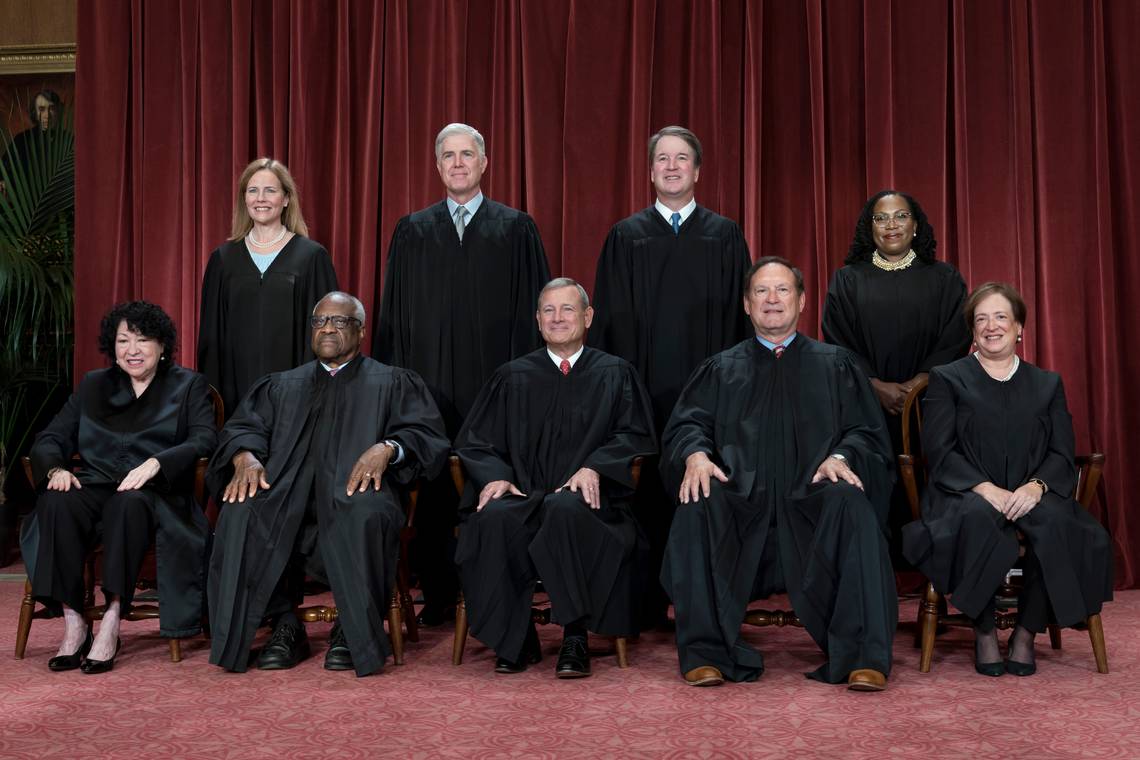Of all the potentially weighty cases on the Supreme Court’s list this term, Moore v. Harper is the one that most frightens me. It is no exaggeration to say that the future of American democracy may be determined by this decision.
Moore v. Harper is due next month and deals with the ability of state courts to enforce state constitutions and state laws in elections. The case stems from partisan gerrymandering of congressional districts in North Carolina, a purple state that went for Obama in 2008 and for Republican presidential candidates ever since, but always by narrow margins. Donald Trump carried the state by 1.3 percentage points in 2020.
After seizing control of the North Carolina legislature in the middle of the last decade, Republicans have redrawn the state’s congressional districts. Leaders of the effort said their goal was to put Republicans in control of 10 of the state’s 13 congressional seats.
Opinion
A computer drew 3,000 possible cards, and the Republicans chose the one most likely to favor their party. It worked: In 2018, Republican and Democratic candidates for Congress received a similar number of votes in the state, but Republicans won 10 of 13 races.
A challenge to the redistribution went to the U.S. Supreme Court, but the justices ruled in a 5-4 decision in 2019 that federal courts cannot appeal challenges of partisan gerrymandering. The court ruled that such matters are political issues that should not be tried by the federal judiciary. The judges expressly left it to state courts to determine whether partisan gerrymandering violates state constitutions.
After the 2020 census, North Carolina and other states redrawn their electoral districts. There are now 14 congressional seats in the state, and the legislature has drawn the districts so that the Republicans would likely win 10 or 11. The North Carolina Supreme Court found that to be against the state constitution and appointed a commission to redraw the districts.
The legislature and its supporters appealed to the U.S. Supreme Court, arguing that the North Carolina Supreme Court had no legal authority to get involved — that the state legislature had the final, unverifiable say. The plaintiffs based their argument on a provision of Section 4 of Article I of the United States Constitution, which states that each state’s legislature shall determine the time, place, and manner of congressional elections. The “independent state legislature theory” takes this literally to mean that a legislature’s decisions about elections are not subject to judicial review.
There are many problems with this theory. It has always been clear that courts can review legislative actions to ensure they are in accordance with the law. Article I of the Constitution gives Congress many powers, but the courts must always decide whether an act of Congress violates the Constitution.
If the Supreme Court accepted the independent state legislature theory, it seems that no court could ever review laws governing elections to Congress, however blatantly unconstitutional. It would mean, for example, that no court can adjudicate partisan gerrymandering, however extreme.
But the implications of the independent state legislature theory go beyond that. There is another provision of the Constitution, in Section 1 of Article II, that gives lawmakers the power to allocate each state’s presidential electorate, which could have dire consequences for the next election.
Imagine the 2024 presidential election being as close as the 2020 election. Imagine the Democratic candidate winning the popular vote in states with Republican lawmakers, as happened in several states two years ago. Imagine that several of these legislators nevertheless award their electoral votes to the Republican nominee, notwithstanding a state law that requires the winner of the popular vote to receive the electoral votes. Donald Trump and his supporters urged several state lawmakers to do just that in 2020, though ultimately none did.
If the court accepts the independent state legislature theory, it could authorize states to do so in 2024. If even a few states do that, it could decide the presidential election. I don’t believe American democracy would survive that. The country could fall apart, with separatist movements emerging in many states.
Judicial review of legislative acts has been a central feature of US government since Marbury v. Madison was decided in 1803. I hope the Supreme Court will protect the judiciary and see the enormous threat this theory poses to democracy. But I’m very concerned.
Erwin Chemerinsky is the dean and professor at the UC Berkeley School of Law.


